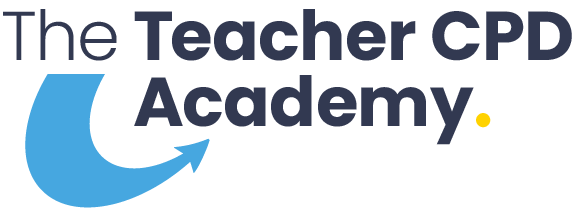BECOMING EVIDENCE-INFORMED
Expert Insights & Keynotes.
Bite-size interviews and keynote presentations from Becoming evidence-informed experts to dig deeper into what you've learnt and how to apply it to your teaching practice.
Watch Expert Insights
Watch Keynotes
PROFESSOR CAMILLA GILMORE
Should
teachers use research that contrasts with their own personal experience?
Discover how to tackle research conflicting with your own professional experience, to gain a different perspective on a topic.
Watch here
Watch here
PROFESSOR CAMILLA GILMORE
What
are the best ways for teachers to access the latest research?
Learn about Professor Gilmore's top tips for getting around the difficulties of research being locked behind paywalls and written in heavy jargon.
Watch here
Watch here
PROFESSOR CAMILLA GILMORE
What
are randomised-control trials and how useful are they in education
Find out what randomised-control trials (RCTs) are and learn about their two main purposes in education: building theories, and evaluating existing programs.
Watch here
Watch here
PROFESSOR CAMILLA GILMORE
What is the difference between correlation and causation?
Learn about the similarities and differences between these two concepts and why it’s so easy to get them confused.
Watch here
Watch here
ANDREW WATSON
What to do when you read conflicting research
Discover how finding contradictory research might be good news as it shows you have been digging far enough.
Watch here
Watch here
ANDREW WATSON
Are certain research designs more useful to educators than others?
Learn more about the strengths and limitations of meta-analysis, randomised control trials and other research methods that are relevant to educators.
Watch here
Watch here
ANDREW WATSON
How much should research inform teaching practice?
Andrew suggests that research should inform rather than replace teachers' own judgment, knowledge and teaching strategies.
Watch here
Watch here
PROFESSOR CAMILLA GILMORE
RESEARCHER
Should teachers use research that contrasts with their own personal experience?
Learn how to tackle research conflicting with your own professional experience, to gain a different perspective on a topic.
Watch here
PROFESSOR CAMILLA GILMORE
RESEARCHER
What are the best ways for teachers to access the latest research?
Discover Professor Gilmore's top tips for getting around the difficulties of research being locked behind paywalls and written in heavy jargon.
Watch here
PROFESSOR CAMILLA GILMORE
RESEARCHER
What are randomised-control trials and how useful are they in education
Find out what randomised-control trials (RCTs) are and learn about their two main purposes in education: building theories, and evaluating existing programs.
Watch here
PROFESSOR CAMILLA GILMORE
RESEARCHER
What is the difference between correlation and causation?
Learn about the similarities and differences between these two concepts and why it’s so easy to get them confused.
Watch here
ANDREW WATSON
RESEARCHER
What to do when you read conflicting research
Discover how finding contradictory research might be good news as it shows you have been digging far enough.
ANDREW WATSON
RESEARCHER
Are certain research designs more useful to educators than others?
Learn more about the strengths and limitations of meta-analysis, randomised control trials and other research methods that are relevant to educators.
ANDREW WATSON
RESEARCHER
How much should research inform teaching practice?
Andrew suggests that research should inform rather than replace teachers' own judgment, knowledge and teaching strategies.
JADE PEARCE
Embedding a research-informed culture
Find out how leaders can work towards embedding an evidence-informed culture into their schools.
JONNIE NOAKES AND DR IRO KONSTANTINOU
The Science of Learning Meets the Art of Teaching: Lessons from Eton College
Find out how we can make our teaching more evidence-informed.
CAT SCUTT
Helping staff become evidence-informed
Learn about how we can use evidence to inform our practice more effectively in the classroom, plus the dangers of misinterpreting research findings.
JIM HEAL AND CARL HENDRICK
How teaching happens: Important Paradoxes
Discover some key ideas from Jim and Carl's book How Teaching Happens, with focus on teaching paradoxes.
JADE PEARCE
PRESENTER
Embedding a research-informed culture
Find out how leaders can look at embedding an evidence-informed culture into their schools.
JONNIE NOAKES AND DR IRO KONSTANTINOU
PRESENTERS
The Science of Learning Meets the Art of Teaching: Lessons from Eton College
Discover how we can make our teaching more evidence-informed.
CAT SCUTT
PRESENTER
Helping staff become evidence-informed
Learn about how we can use evidence to inform our practice more effectively in the classroom, plus the dangers of misinterpreting research findings.
JIM HEAL AND CARL HENDRICK
PRESENTER
How teaching happens: Important Paradoxes
Discover some key ideas from Jim and Carl's book, "How Teaching Happens", particularly focusing on teaching paradoxes.

Created by InnerDrive, a UK based company delivering high-quality training, based on Cognitive Science research.
Please fill the form in below and we will get back to you as soon as we can. We look forward to hearing from you!
Please fill the form in below and we will get back to you as soon as we can. We look forward to hearing from you!
Please fill the form in below and we will get back to you as soon as we can. We look forward to hearing from you!
Please fill the form in below and we will get back to you as soon as we can. We look forward to hearing from you!
Write your awesome label here.
Cognitive Load Theory
Cognitive Load Theory highlights that all information first has to go through our working memory, which has a limited capacity. Too much information can overload students' brain, which can hinder or even completely halt transfer to their long-term memory – which is where learning happens.
